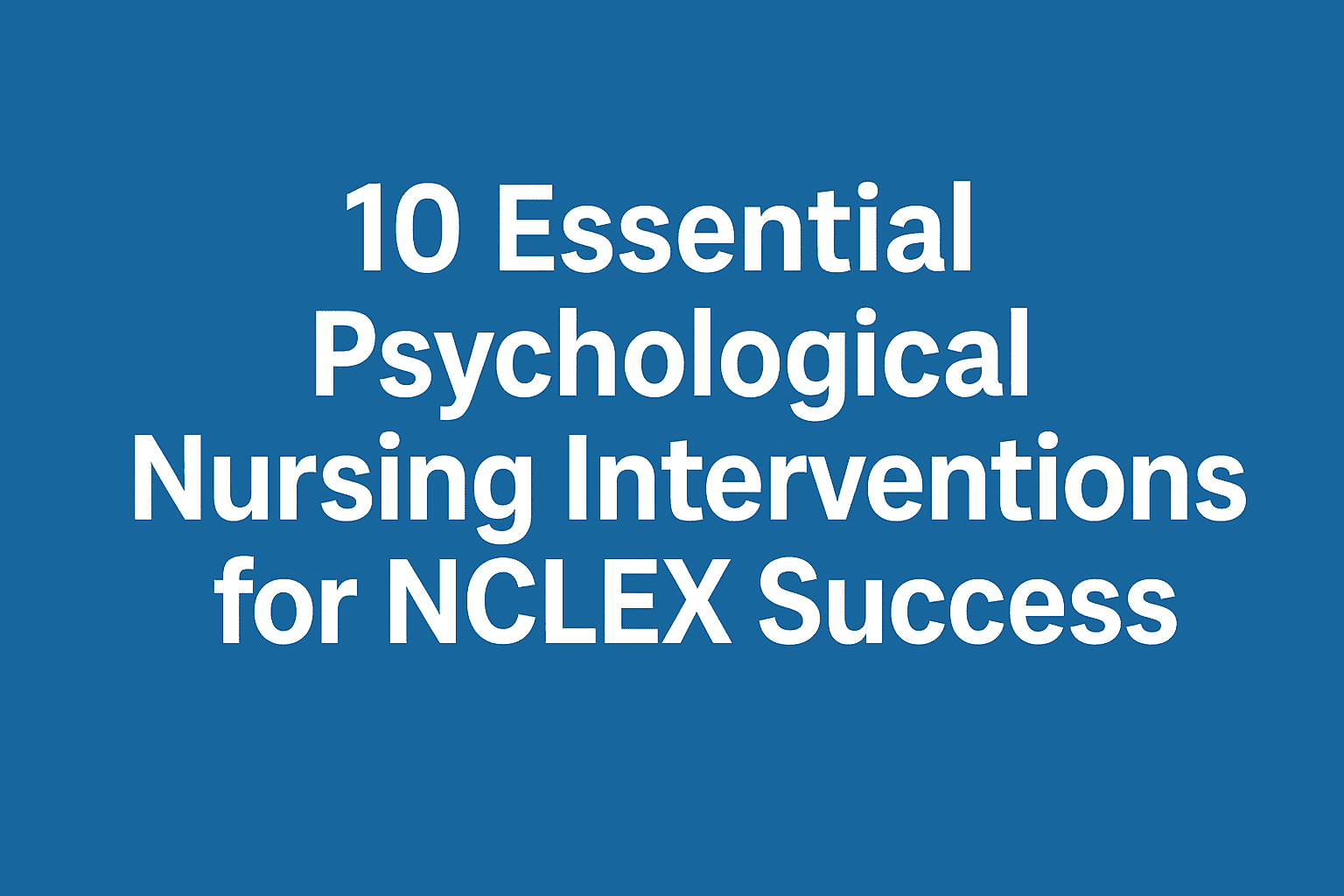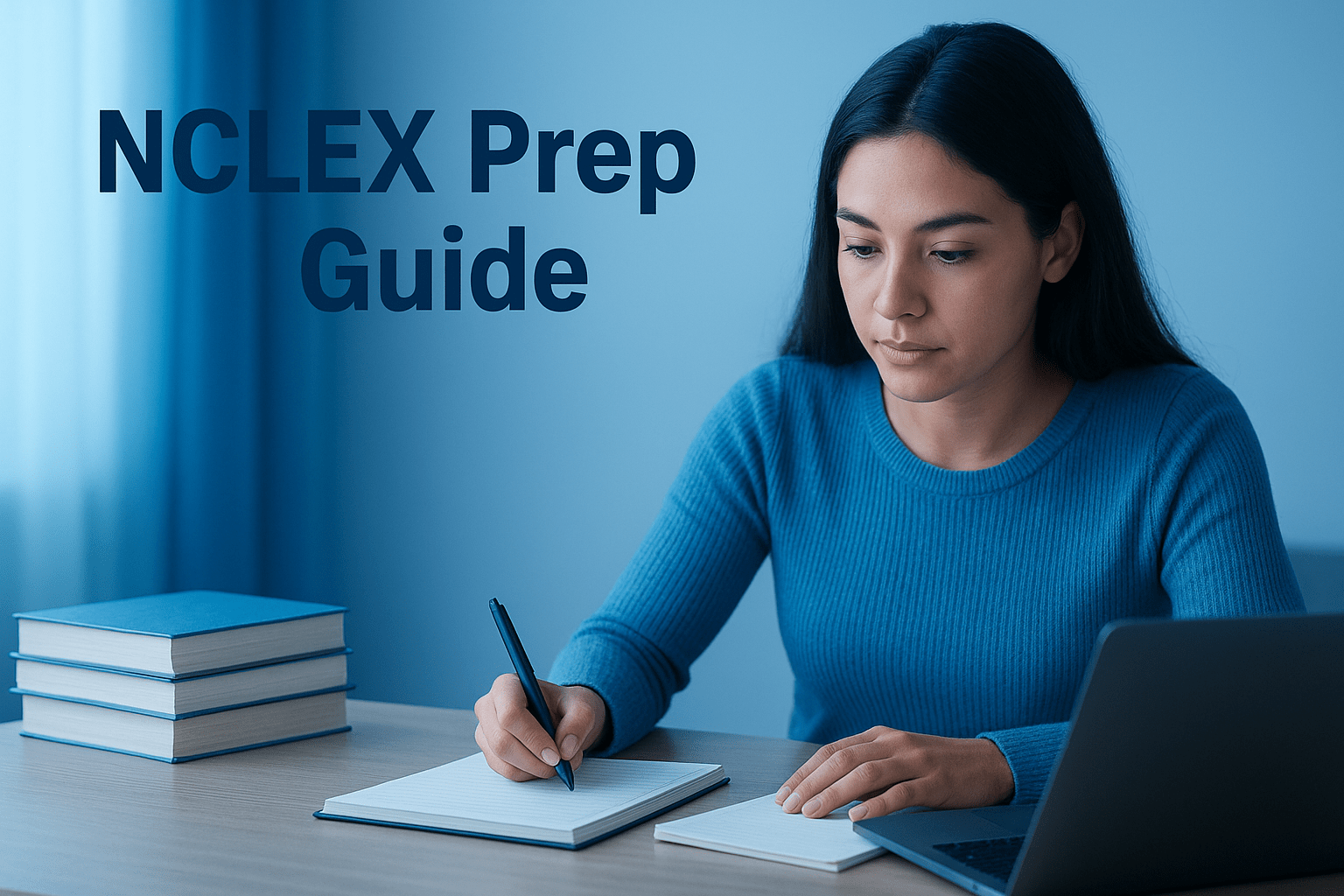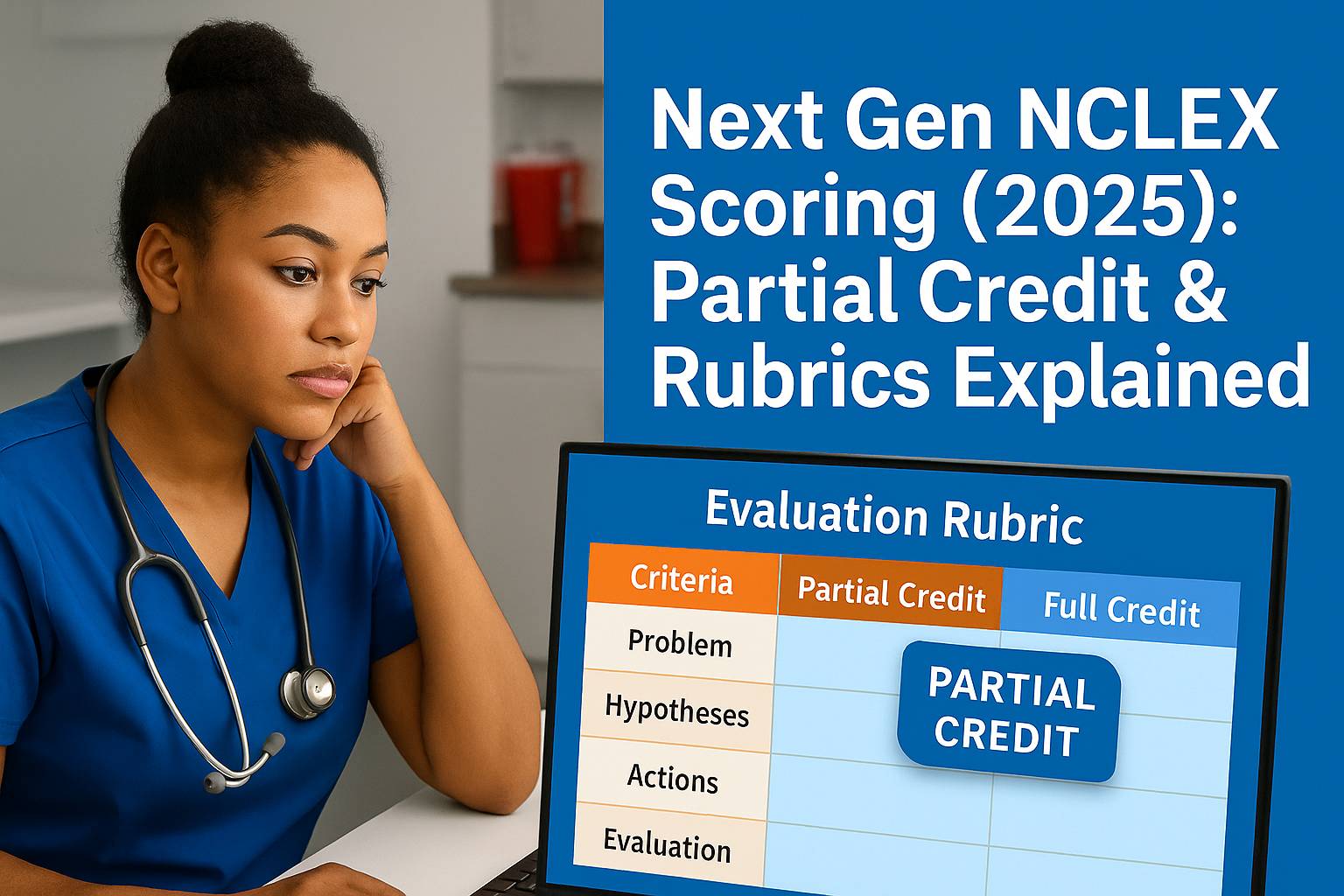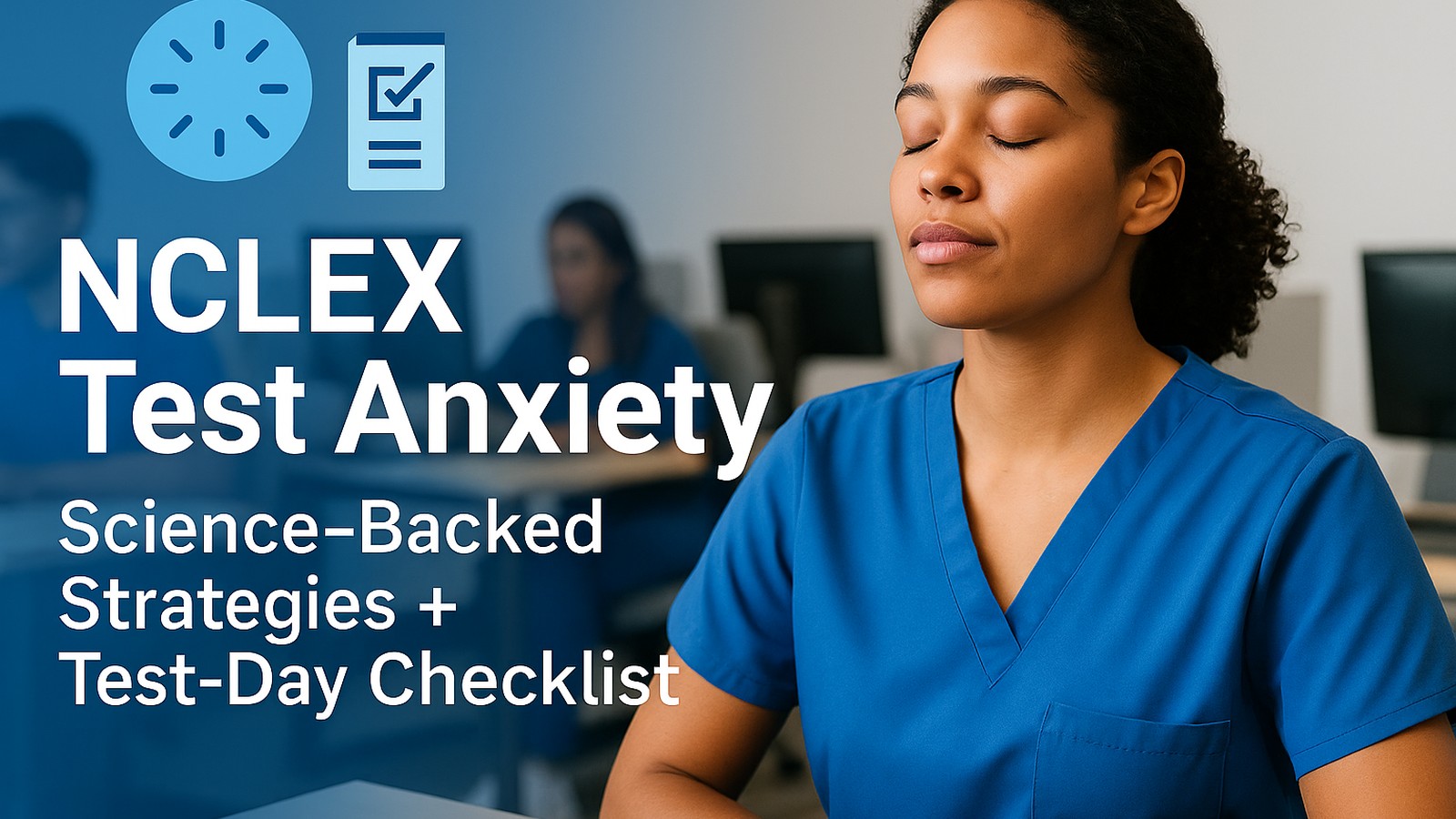Passing the NCLEX is the final gate between graduation and your nursing license. But before you book a seat, you need to confirm the qualifications to take the NCLEX in your state or province, understand the timeline, and get your study plan dialed in. Here’s a clean checklist you can follow today.
NCLEX in 60 seconds
The NCLEX (RN or PN) is a national licensing exam that uses Computerized Adaptive Testing (CAT) to measure safe, entry-level practice. You’ll answer scenario-based questions that focus on clinical judgment, safety, and prioritization—not just recall.
The core qualifications to take the NCLEX
1) Graduate from an approved nursing program
-
ADN or BSN (for NCLEX-RN) or approved practical/vocational program (for NCLEX-PN).
-
Your school must be state-approved (and typically accredited).
-
Not sure? Check your state board of nursing’s approved program list.
2) Apply for licensure by examination (your board of nursing)
Most boards require:
-
Official transcripts sent directly from your program
-
Fingerprinting/background check
-
Application + test fees
-
Any board-specific forms (e.g., affidavit of graduation)
3) Receive your Authorization to Test (ATT)
-
After your board approves you, they notify NCSBN.
-
You’ll get an ATT by email—this opens your exam scheduling window.
-
ATT validity varies by board; schedule promptly to avoid reapplying.
4) Complete any extra state requirements (if applicable)
-
English proficiency (international graduates)
-
Jurisprudence/ethics exam (state-specific)
-
Legal status/visa documentation for international candidates
Bottom line: If you completed an approved program, submitted your licensure application, and received an ATT, you meet the qualifications to take the NCLEX.
Helpful add-ons most candidates ask about
Typical costs (approximate, varies by state)
-
Board application: $75–$300
-
Exam (Pearson VUE): $200+
-
Fingerprinting/background check: $40–$80
Timelines you can expect
-
School sends final transcripts: days–weeks
-
Board review: 2–6 weeks (varies)
-
ATT window: often 60–90 days—check your board’s exact policy
Retake policy (if needed)
-
Most boards follow NCSBN guidance (minimum 45 days between attempts).
-
Confirm the maximum attempts and any remediation rules with your board.
International graduates (quick guide)
-
Verify education equivalency through your board’s approved service.
-
Submit English proficiency (if required).
-
Provide identity/visa documentation.
-
After approval, you’ll receive an ATT and schedule like any candidate.
Study plan once you’re eligible
Build a 4-week rhythm (sample)
-
Mon–Fri: 25–40 mixed questions + 30 minutes rationales
-
2 focus blocks/week: e.g., Pharmacology; Safety & Infection Control
-
Sat: Timed 75–125 Q simulation; review weak areas
-
Sun: Light skim or rest
Train how you’ll test
-
Use CAT-style simulations, practice SATA, prioritization, and delegation.
-
Read full rationales to learn why options are safe/unsafe.
-
Revisit weak topics within 24–72 hours (spaced review).
Why Nurseclex helps you pass faster
-
Adaptive quizzes & simulators that mirror CAT logic
-
Clear rationales with step-by-step safety reasoning
-
Study guides for high-yield areas (pharm, labs, delegation)
-
Any-device access for study on the go
Start here (natural internal links):
NCSBN NCLEX Test Plan overview
Quick FAQ
Do I need a BSN to qualify for the NCLEX-RN?
No. An ADN or BSN from a state-approved program qualifies.
How long is my ATT valid?
Varies by board—often 60–90 days. Always check your exact window.
Can international grads take the NCLEX?
Yes—after education equivalency, English proficiency (if required), and board approval.
Meet the qualifications to take the NCLEX? Great—now train for the real thing. Use Nurseclex simulations, targeted drills, and rationales to convert readiness into a first-try pass.







